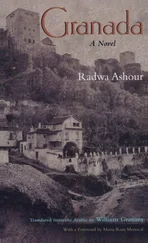We laughed in that cramped room, in the glass-fronted breakfast salon that overlooked the rue des Ecoles; we laughed at the offerings of the ‘Continental’ breakfast which, no sooner had we finished it than Nadir demanded, ‘So when can we have breakfast?’ We laughed in the restaurant across from the hotel when we crossed the street to have dinner there. We laughed in the Metro, at the museums, in the street; we laughed when I told them how angry I got with my mother because of what she said to Gérard; we laughed when I said, ‘And what was I hoping for, anyway? That the boy would hold my hand or kiss me on the forehead when he told me goodbye?’
The twins were racing at full speed, as befits eighteen-year-old boys, and I was flying, as a matter of temperament and habit.
Chapter nineteen
An episode
Nadir and Nadeem enrolled in the College of Engineering at Cairo University. Nadir took on extra work and thus earned some money. Sometimes he tutored classmates, and other times he worked at a computer repair shop; during the summer he contracted with a private company and worked throughout the months of his holiday from nine in the morning until nine at night. He seemed happy, so I didn’t interfere. Hamdiya objected that sitting in front of the computer so much was bad for his eyes — it distressed her that he had gone to an eye doctor and discovered that he needed eyeglasses. ‘No one in our family,’ she said anxiously, ‘has had glasses: neither your father nor I, nor Nada nor Nadeem. It’s because of the computer!’
Pretending to be in earnest, Nadir replied, ‘I got my bad eyesight from my French grandmother!’
Nadeem enrolled in the school of architecture, as planned. He threw himself into his studies, which he loved. He did a great deal of reading in the history of art and architecture. During the summer holiday he couldn’t find work, but during the summer after his third year his brother recommended that he work with him at the computer company where he himself was employed, and Nadeem agreed to this.
My relations with the twins were smooth and pleasant, and there were no problems in my relationship with Hamdiya. When we disagreed and I lost my temper with her or she talked irrationally, we would quarrel, but in general the row would be a passing thing, lasting no more than a few hours and leaving neither of us with hurt feelings.
Then came the event that broke all the rules.
I was sitting in front of the television. The programme was a talk show featuring a former prisoner I believed was a colleague of my father’s. I called Hamdiya and the boys to listen to the discussion with me. The man (who was close to eighty years old by then) was recalling his fifteen years of incarceration in the military prison, as well as the Citadel, Liman Tora, and Mahariq. He didn’t speak at length about torture, but rather went into detail about the improvements at Mahariq Prison: the theatre they had built, the technical workshop, the newsreels they produced, the educational sessions, the school they set up to teach literacy skills to prison guards who could not read or write, and the pictures that were drawn or engraved by artists upon the prison walls and doors.
The host asked him, ‘You alluded once to the incident when a prisoner bowed his head and licked the dust — do such things really take place inside a prison?’
‘Of course.’
‘Did you experience this?’
‘Of course.’
His face registered a calm that was unimaginable to me. Was it old age and the remoteness of the past, or wisdom attained at last?
The announcer asked him, ‘Did your father cry when he saw you, a fine and promising doctor, with your hands in shackles?’
‘No, he didn’t cry.’
‘What happened?’
‘Nothing.’
‘You don’t remember anything of this first meeting with your father?’
‘I remember that I tried to make things easier for him. I could imagine how difficult it was for him to see me with my legs in irons — there were iron shackles on both my legs. I didn’t want him to keep silent, with me silent as well — I wanted to break the silence, so I began speaking lightly of the shackles. I said, “I’ve got used to them.” I said, “And besides, we’ve hit on a trick that allows us to take them off when we’re on our own.” ’
‘And what did your father say?’
‘He didn’t say anything. Only I noticed as he was leaving…’
A slight tremor in his face.
‘I noticed…’
It was difficult for him to speak, so he stopped, then tried again.
‘I noticed, as he was leaving… I noticed that his shoulders were a bit stooped.’
The doctor hung his head. The camera moved off. I looked at the boys, unable to read their expressions. They were watching ancient history, you might say. Besides, they had no knowledge of the relationship between father and son.
I spent the night telling the boys about their father and his experience of prison. I talked at length about this, then expanded into a discussion of oppression in our country. Hamdiya did not take part in the conversation, but sat with us, listening in silence.
The following morning, as soon as the boys had left for school she said, ‘Why do you talk to the children about these things? It’s past and gone — why dig it up?’
Her words startled me. I said, ‘First of all, because it’s better that the boys know the story of their father. Second, because we talk about our country’s history, and I don’t want them to be like deaf people at a wedding, with no idea what’s going on around them.’
‘You’re opening their eyes to politics, and politics is the way to perdition. I don’t want them to go to prison like their father, I don’t want armed security officers knocking on our door at dawn and taking them off to prison, like what happened to you.’
I smiled and said, ‘Times have changed. We’re in the ’90s now. Don’t worry — the ones getting put in prison now are the Islamists, and the boys don’t have any Islamist leanings!’
What did I say to make her so angry? Her face was flushed, her voice high and shrill: ‘I want the boys to concentrate on their studies and finish school in God-given safety, and I want them to live a normal life! I don’t want their father’s life for them — or yours!’
‘Enough, Hamdiya!’
But she launched into a long, bizarre monologue on her own sacrifice and her patience with my interference in every matter large or small pertaining to the boys. ‘I said to myself, “Be patient, Hamdiya, keep an open mind, Hamdiya, let God guide you, Hamdiya…” ’ And on and on. Then she hurled her final thunderbolt: ‘In the end, I am their mother, and the mother has a stronger connection to the child than a sister does — especially one who’s not a full sister!’
I left the room, shouting, ‘From the first moment I met you I knew instinctively that you were stupid. But I didn’t know you had no manners!’ I left the house, slamming the door violently behind me.
I stayed away from the house the whole day, and only returned home when it was past midnight. She had gone to bed. I kept this up for a whole week. I didn’t say anything to the boys. On returning home late, I would find them studying in their room. They asked why I was out so much, and I said, ‘I have some extra work for a couple of weeks.’
One night I came home and found them waiting for me. Nadeem opened the conversation. ‘Mama said that you had a row, and that you’re angry with her.’
I didn’t respond.
‘What happened?’ Nadir asked.
I didn’t respond.
Sometimes it happens that families quarrel, but then the waters flow once more in their regular course.
The waters didn’t return to their usual course, not because we hadn’t got past the words we had exchanged — we appeared to have got past them and gone back to our accustomed ways of interacting — but because the rift interposed itself all over again when the boys came home from university and talked about the student demonstrations protesting the Hebron massacre. These were the first major demonstrations to take place during the period of their university studies. (They had been in high school at the time of the student protests against the first invasion of Iraq in 1991.) Over dinner, the two boys began to tell the story of the students’ rally.
Читать дальше











